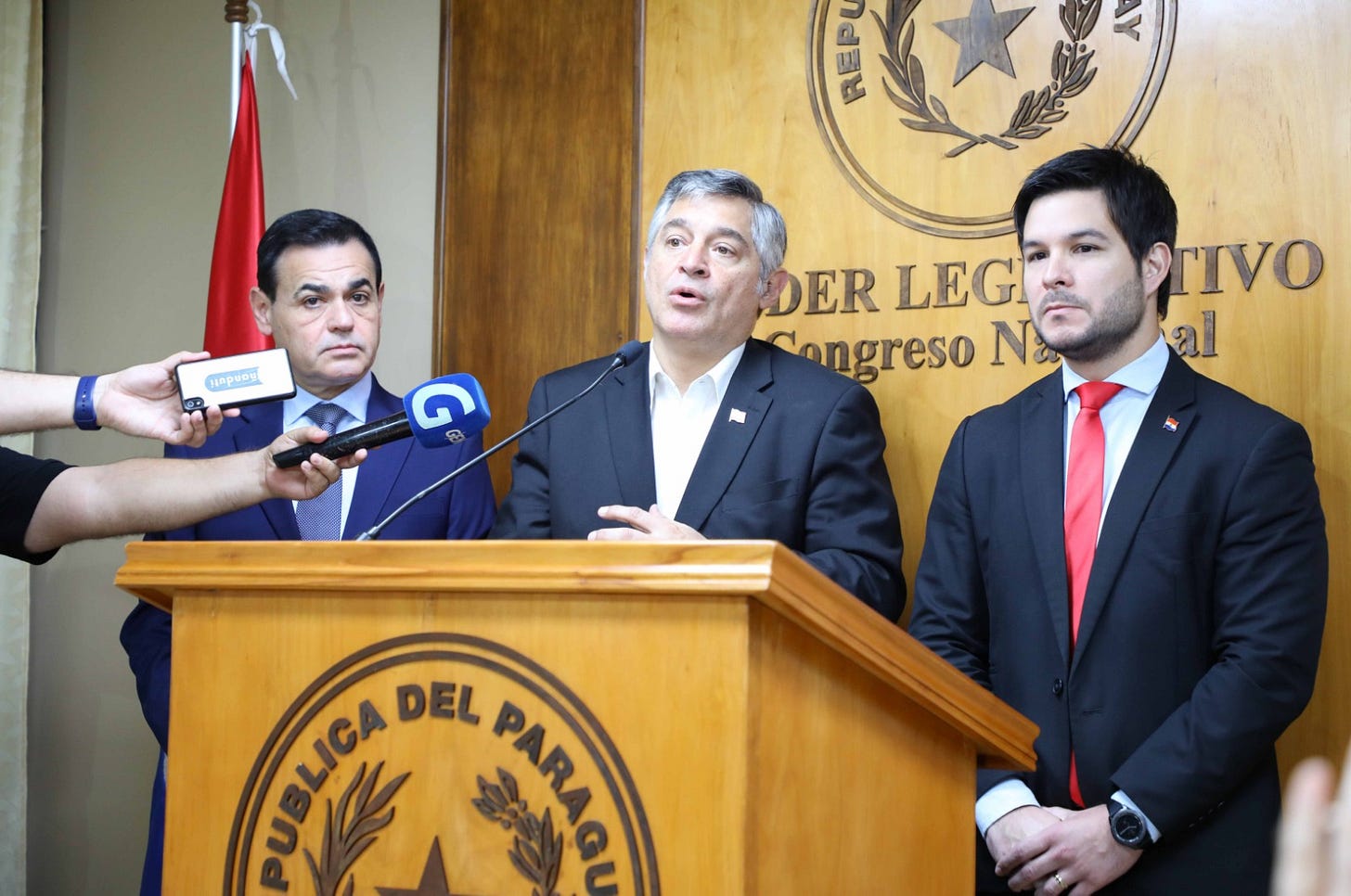Paraguay Scrubs "Gender" from Schoolbooks
The Weekly Post | 24.11.25

TOP STORY
Gender censored
Paraguay has banned all use of the term “gender” in schoolbooks. A resolution signed on November 7 by Education Minister Luis Ramírez forbids any mention of the terms equality, gender equality, equity, or gender perspective in classroom materials with immediate effect. The document – which expands on a 2017 decree prohibiting educational materials that make reference to “gender theory and/or ideology” – says it seeks to “avoid ambiguities” and “promote the protection of boys, girls and adolescents”.
Education campaigners have reacted with dismay to the ruling, describing it as regressive, anti-science, and likely to disadvantage Paraguayan children. “By prohibiting the word ‘gender’, Paraguay’s education system falls behind international standards, restricts teacher training, and impoverishes students’ understanding about the world they live in,” Adriana Clos of Feipar, a liberal-minded parents’ association, told DW. “It’s impossible to analyse violence, discrimination, or human rights without referring to the concept of gender.”
Answering reporters’ questions last week, Minister Ramírez denied that the resolution censored the word gender. Instead, he argued, it aimed to bring schoolbooks in line with the language used by Paraguay’s constitution, which says that “man and woman have equal rights” and describes the family as “the foundation of society.” But an annex to the Education Ministry’s resolution clearly states that “the word gender is suppressed in all educational materials, whatever the format.”
THE PARAGUAY POST ANALYSIS:
Academics and progressive advocates argue that while “sex” refers to biological differences, “gender” is an essential concept that captures the unequal roles, expectations, and opportunities assigned to men and women. But for hard-line religious activists, the G-word represents a Trojan horse for more controversial discussions about gender identity and transgenderism that could damage young minds. The latter group dominates a parental council that advises Paraguay’s education ministry, which is currently trialling a new sex-ed curriculum that claims – among other things – that boys don’t cry.
Paraguay’s technocratic president Santiago Peña – once in favour of equal marriage and debate about decriminalising abortion – has rebranded himself as a woke-bashing warrior and a defender of the nuclear family, giving a tub-thumbing address to far-right foreign leaders like Santiago Abascal and José Antonio Kast in Asunción in June. Yet Peña’s ultraconservative credentials have been found wanting by some critics, including earlier this month after he further watered down a controversial anti-NGO bill promoted by his own Colorado Party.
Paraguay’s ruling right-wing party is currently split by recriminations over its embarrassing defeat in the mayoral elections in Ciudad del Este, Paraguay’s second city. Faced with a clutch of characterless pre-candidates, the Colorados’ governing and dissident factions are both struggling to decide who to field for the Asunción City Hall race in 2026, let alone for the presidency in 2028.
Amid all that squabbling, using “gender ideology” as a political punch bag is one of the few things the Colorados can agree on right now: even as 80% of Paraguayan women say they have experienced gender-based violence in their lifetime.
You’re reading The Weekly Post, an essential Monday briefing on Paraguay.
Also in this week’s issue:
Paraguay and Brazil bury spying scandal · Is Paraguay faking its fiscal deficit? · A crackdown on campesinos · Chinese cultural diplomacy advances · In Other News
Want to see the rest? Get your free trial here:
POLITICS
Brazil bust-up over
Paraguay and Brazil have agreed to put a spying scandal involving the Itaipú dam behind them. Visiting Asunción last week, Brazilian foreign minister Mauro Vieira delivered a “confidential report” on the matter, stating that his government is “taking all measures” to identify those responsible for allegedly snooping on the communications of Paraguayan officials between June 2022 and March 2023. Paraguay now considers “the matter concluded,” according to a joint statement.
Keep reading with a 7-day free trial
Subscribe to The Paraguay Post to keep reading this post and get 7 days of free access to the full post archives.



